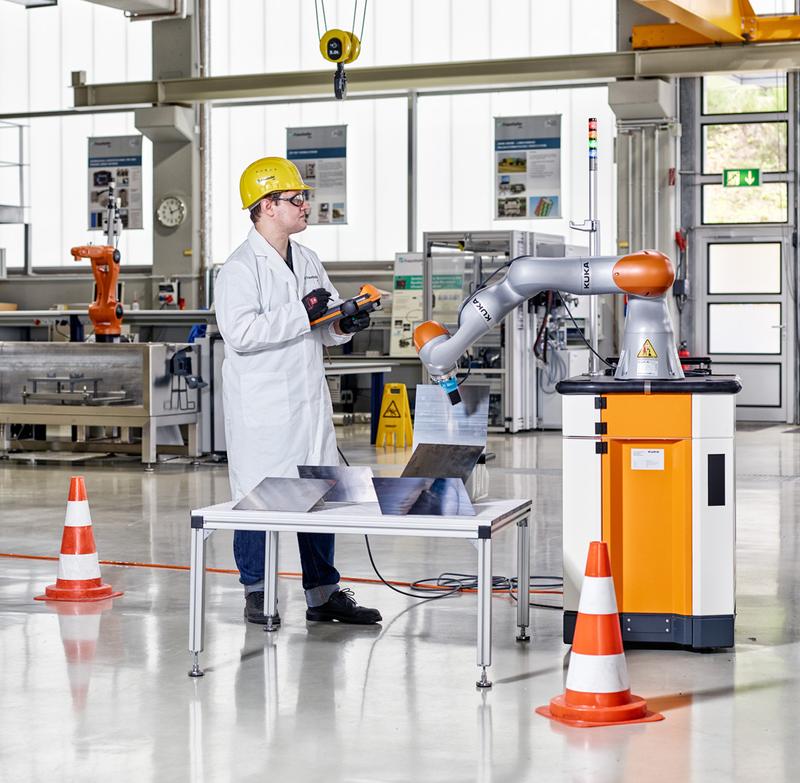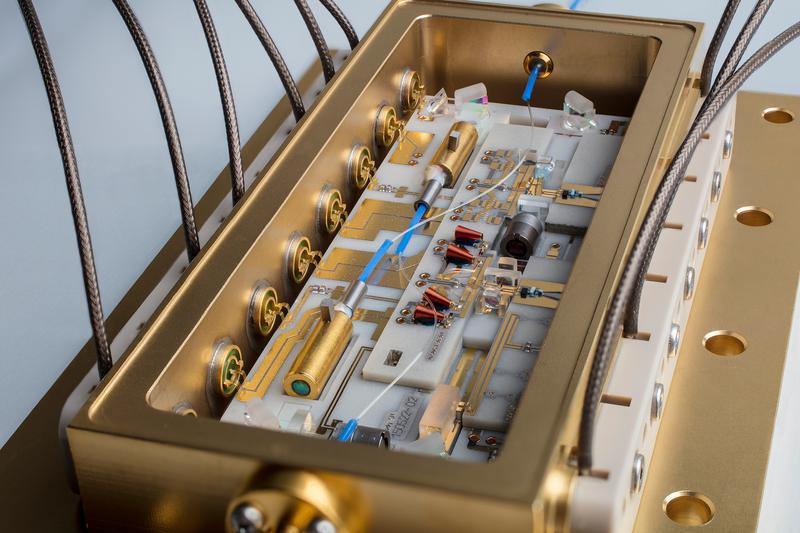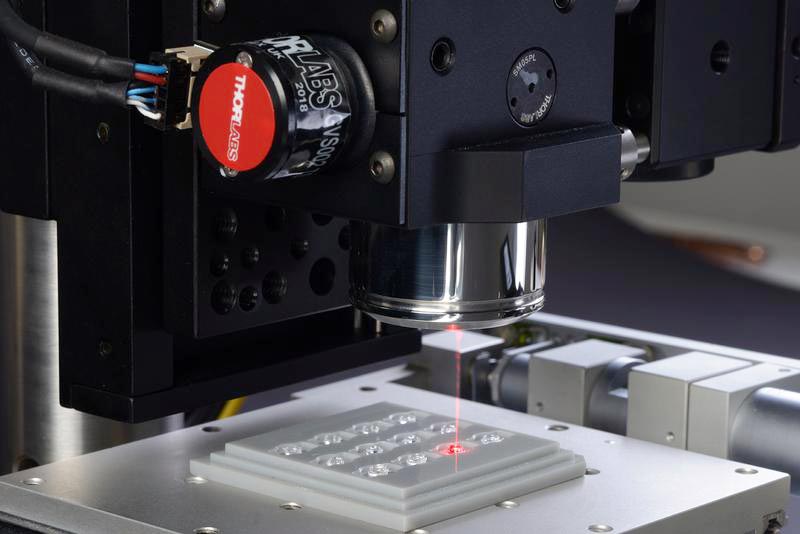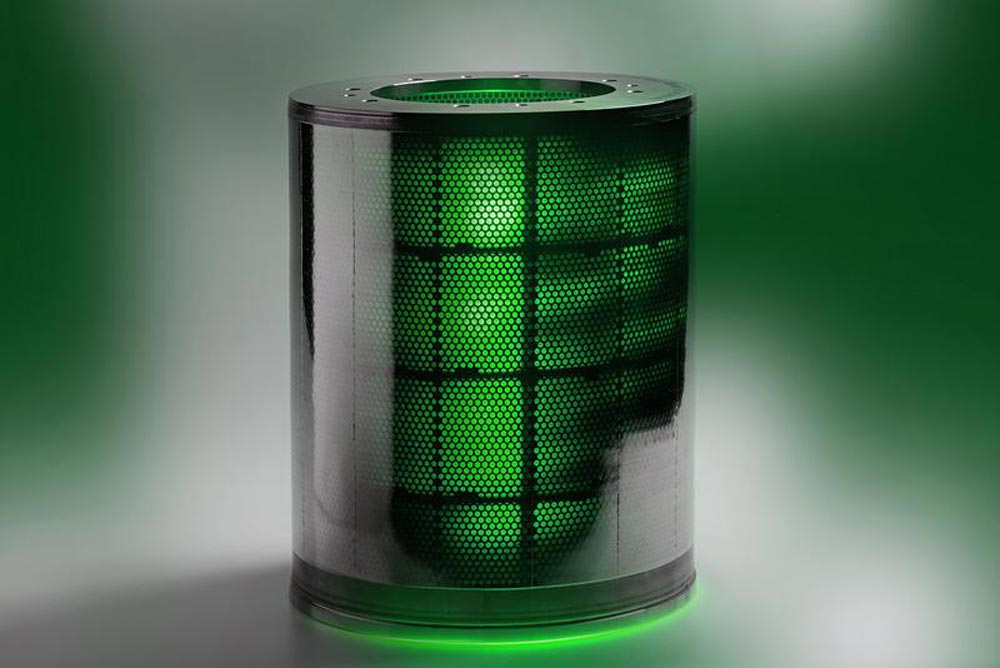

Realizing robot-assisted inspection of steel sheets for mechanical properties (residual stresses, etc.) by micromagnetic procedures (3MA).
Fraunhofer IZFP / Uwe Bellhäuser
When time-consuming destructive testing methods are used, the damage or destruction of the products results in enormous costs of the quality inspection. Moreover, due to the fact of inspections being limited to random samples process flaws are often not detected until a considerable amount of rejects has already occurred. Thus, nondestructive testing methods provide an alternative and, after appropriate implementation, a long-term replacement for destructive methods.
Cognitive sensors for quality assurance in production
At this year's EuroBLECH, our engineers will demonstrate a robot-assisted sensor system for fast and plain integration into production processes. The automated use of intelligent, nondestructive sensor systems is not only crucial for ensuring optimum product quality in production, but also indispensable for implementing current “machine learning“ concepts.
The potential application of such systems is demonstrated by means of the robot-assisted inspection of press-hardened components using EMAT and 3MA in which EMAT enables the couplant-free defect inspection in sheet metal, while 3MA allows quantitative material characterization in parallel.
Inspection in seconds
The benefits of the robot-based combination of 3MA* and EMAT** sensors comprise the contact-free inspection, detection and assessment of multiple relevant quality characteristics of sheets in a matter of seconds.
Using this sensor-based inspection procedure, mechanical properties of steel such as residual stress states and hardness are identified and defects such as cracks or constrictions are detected at an early state. As a result, resources are spared and costs are reduced while at same time the competitiveness of producers is strengthened. The institute aggregates decades of experience and know-how in the field of combining and automating nondestructive inspection methods for production.
Cognitive sensor systems – efficient processes
Fraunhofer IZFP’s scientists and engineers develop cognitive sensor systems, i. e. intelligent, auto-adjustable sensor/actuator networks that are able to monitor, control and optimize both, single processes and entire value-added chains. In doing so, not only production processes are focused, but likewise processes in the fields of material and product development, maintenance, upkeep and recycling of raw materials. To this, the institute deploys the entire scope of available physical measuring principles.
* 3MA – Micromagnetic Multiparameter, Microstructure and Stress Analysis
** EMAT – Elecromagnetically (excited) Acoustic (ultrasound) Transducer
Frank Leinenbach | Fraunhofer Institute for Nondestructive Testing IZFP | Phone +49 681 9302-3627 | Campus E3.1 | 66123 Saarbrücken, Germany | www.izfp.fraunhofer.de | frank.leinenbach@izfp.fraunhofer.de
http://www.izfp.fraunhofer.de
https://www.facebook.com/FraunhoferIZFP/












